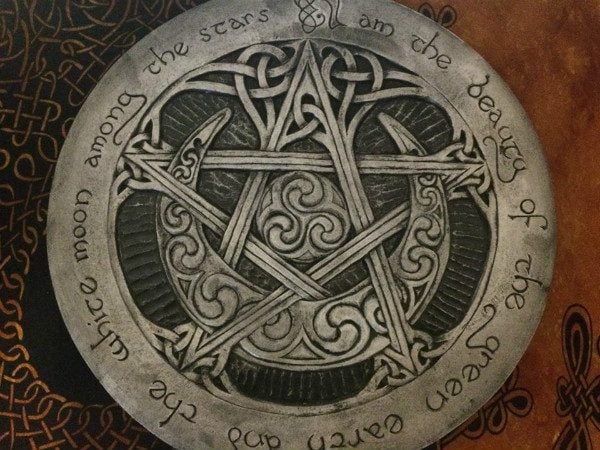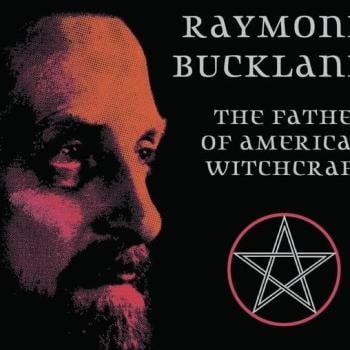I’ve read a lot about “Wiccan Privilege” over the last couple of weeks, but what often gets lost in such discussions are the reasons why people choose to become Wiccan. Wicca* does have a few institutional advantages, but that can’t be the only thing. (For another take on this topic see Why Are So Many Pagans Wiccan? over at Metal Gaia.)
I would never say that Wicca “is the best” Pagan Path or other such nonsense, but it has been what’s best for me personally. I know others who have found their bliss as Druids, Heathens, Re-constructionists, and at least half a dozen other types of Paganisms. (And some have found that being a part of several traditions simultaneously works for them too. Many Pagans have their fingers in several different pies so to speak, why that’s not mentioned more often can be a bit baffling.)
Wicca has a head-start. There were most certainly people we’d recognize as witches and Modern Pagans before Gerald Gardner went public in the early 1950’s, but those folks didn’t speak to the media. Gardner did, and as a result Witches became the “go-to Pagans” for magazine and newspaper articles. If Ross Nichols had started The Order of Bards, Ovates and Druids before Gardner things might be very different today, but it didn’t happen like that.
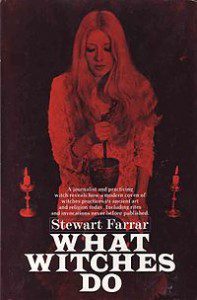 Books on Wicca and Witchcraft** have been available for sixty years. Gardner’s first book on Witchcraft has been in print since 1954. By the early 1970’s books with rituals were also available. Most other Pagan groups didn’t get books in print until at least the 1970’s, with many groups having to wait until the 1990’s to share their beliefs on the printed page. Several Pagan traditions were able to share their beliefs via newsletters and magazines starting in the 1970’s, but those types of periodicals weren’t available on a large scale.
Books on Wicca and Witchcraft** have been available for sixty years. Gardner’s first book on Witchcraft has been in print since 1954. By the early 1970’s books with rituals were also available. Most other Pagan groups didn’t get books in print until at least the 1970’s, with many groups having to wait until the 1990’s to share their beliefs on the printed page. Several Pagan traditions were able to share their beliefs via newsletters and magazines starting in the 1970’s, but those types of periodicals weren’t available on a large scale.
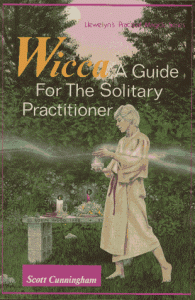 There are no barriers. Wicca is extremely portable. It doesn’t require any tools or ceremonial flame. One can practice Wiccan rituals privately in their bedroom without any problems. Being able to create sacred space in the comfort and privacy of one’s home is a big advantage. That advantage is not unique to Modern Wicca, but considering the large amount of books and online materials written for “solitaries” it’s gotten easier and easier to practice Wicca by one’s lonesome and without a lot of accouterments.
There are no barriers. Wicca is extremely portable. It doesn’t require any tools or ceremonial flame. One can practice Wiccan rituals privately in their bedroom without any problems. Being able to create sacred space in the comfort and privacy of one’s home is a big advantage. That advantage is not unique to Modern Wicca, but considering the large amount of books and online materials written for “solitaries” it’s gotten easier and easier to practice Wicca by one’s lonesome and without a lot of accouterments.
Wicca is adaptable. There are many who see adaptations within Wicca as proof that it’s a “fluffy Pagan religion.” I see something else entirely. Wicca provides a framework for working with deity. I can cast a Wiccan circle and commune with Pan and Aphrodite, and one county over someone else can cast their own Wiccan circle and connect with Isis and Osiris. That’s not a bad thing, that’s an empowering thing! We all have our own gods, and Wicca lets us meet those gods if we choose to utilize its ritual system for that purpose.
Adapting Wiccan rites and practices can go a bit farther than many of us might like (I’ve sometimes felt like a Witch trapped the middle of petri-dish during a few more “experimental” rituals) but when I don’t like something I’m always free to leave or even express my dissatisfaction when the proceedings have finished. I’m also free to put a qualifier in front of the type of Wicca I practice-in this case British Traditional Witchcraft.
Wicca is compatible with a variety of social issues and political causes. While Wicca doesn’t necessarily have to be an environmental faith, it certainly lends its self to that interpretation. A religion built around the Wheel of the Year and the gods and goddesses found in nature is going to attract a lot of folks who view the Earth as sacred. Modern Witchcraft is also extremely attractive to feminists and their supporters. It’s the opposite of patriarchal religions which put all authority into the hands of a male god and his (generally) male priests and ministers. Wicca has always put power into the hands of women, even in the days of Gardner the High Priestess was the authority in the coven.
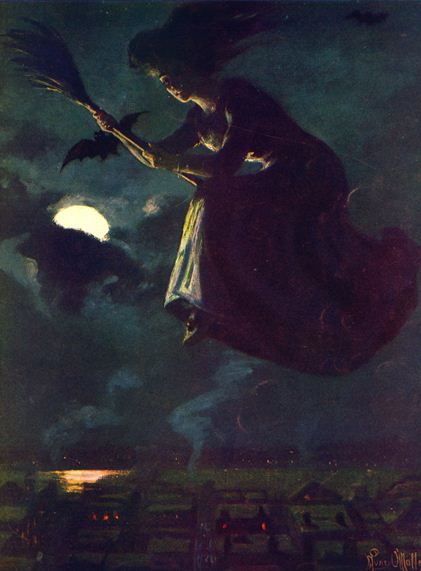 The word Witch is provocative. The word “witch” captures the imagination in a way few other words do; “Re-constructionist” is just not as tantalizing. Witch is a word people are drawn to, and they’ve been drawn to it for centuries. The word has a great deal of power, no matter what sort of context it’s being used in. It has a history and it’s a word most children encounter at a young age (fairy tails, Wizard of Oz, Disney, etc.). That usage hasn’t always been positive, but it has made the word and all of those associated with it a subject for the curious. When someone reads a Harry Potter book and comes across the word “witch” that might result in someone encountering Wicca. I’m sure the same thing is currently happening with Norse traditions and the TV show Vikings.
The word Witch is provocative. The word “witch” captures the imagination in a way few other words do; “Re-constructionist” is just not as tantalizing. Witch is a word people are drawn to, and they’ve been drawn to it for centuries. The word has a great deal of power, no matter what sort of context it’s being used in. It has a history and it’s a word most children encounter at a young age (fairy tails, Wizard of Oz, Disney, etc.). That usage hasn’t always been positive, but it has made the word and all of those associated with it a subject for the curious. When someone reads a Harry Potter book and comes across the word “witch” that might result in someone encountering Wicca. I’m sure the same thing is currently happening with Norse traditions and the TV show Vikings.
Wicca works. Often lost in these type of discussions is that Wicca simply works for (possibly) millions of people. Its ritual structure is adaptable and it’s theology flexible. It’s capable of accommodating serious students of the occult and those who merely wish to dabble (not everyone needs to be a High Priestess or Priest). All of Wicca’s other advantages in the Modern Pagan landscape wouldn’t amount to a hill of beans if people weren’t able to find what they were looking for spiritually within its magickal circle.
Over time many of the institutional advantages currently held by Modern Wicca will start to disappear. There will be more books about other Pagan traditions, and already Wicca is but one voice in a larger Pagan Blogosphere. We are barely into the revival (and some days experiment) that is Modern Paganism, the fact that Wicca is but one tradition in a sea of powerful and vibrant faiths speaks well of those traditions and Pagandom as a whole.
*In this case referring to any Wiccan tradition that can trace its lineage/cosmology/theology to the writings of Gerald Gardner and those who were influenced by him. I realize of course that not everyone is going to agree with that definition.
**Wicca and Witchcraft are not necessarily synonyms, there are many different types of Witchcraft and not all of them are related to Wiccan ideas and practices. However, the majority of books about “Witchcraft as a religious and/or magical system” tend to be Wiccan in orientation. For the record, I only wrote “the majority” there, that doesn’t translate to “all.”


